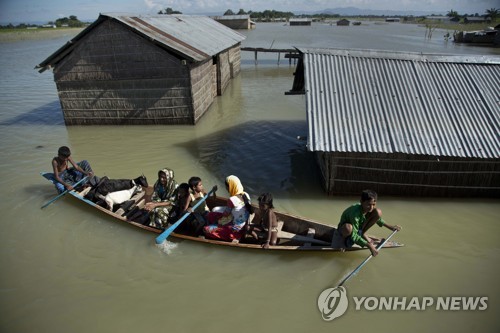
Limited media attention is ruining the Earth

By Neelima Mathur
India-based Executive Producer-Researcher-Writer, Mentor & Trainer
Director of Lakeside Doc Festival
NEW DELHI: It’s amazing how we talk of Climate Change like a new phenomenon. Floods, droughts, cyclones, melting glaciers have been staring in our face for decades. We also tend to equate global warming as climate change. Whereas, in fact, global warming is only one aspect of climate change. Greenhouse gas or GHG is a major contributor to global warming. The current levels of GHG are unprecedented over at least 800,000 years. Energy consumption is the biggest culprit.
As I write this presentation, a front page story, was a depressing start to the day. A 17 kilometres stretch of a coastal area in an eastern state of India was once home to 700 families in a cluster of seven villages. Once a weekend picnic spot, today, it stands deserted. Only a few people live in the remaining household. A 40-year old is guarding the village alone.
Another old man, who has weak energy, catches fish for his wife and himself. When possible, he crosses a 5 kilometre stretch that includes a creek and crocodiles to sell fish and fetch the free rations. This is the sad reality of rising sea levels. According to the report, 28% of the state’s 550 kilometre coastline has been submerged into to the sea between 1990 and 2016.
WHO declared Covid-19 as a global pandemic. It also claims that Climate Change is the biggest threat to human health. So, where are we? Let’s look at the amount of media coverage on Covid and Climate Change.
A United Nations document 2020 & Beyond mentions two important points. It states that technological solutions for 70% of today’s emissions already exist. Oh really, now that IS news. It ends with saying: If government, business, civil society, youth, academia work together, issues can be solved. What is the missing noun? You got it: MEDIA.
The most disturbing fact is that the media with the limited attention is mostly from the Western countries. It does not point the political responsibility nor pursue nuanced conversations. As we know, the media shapes political reality AND business interests. So, first question: Does media really help popularising the 70% technological innovations the UN mentions?
Another factor is the commodification of the environment that lacks the human element. The coverage that is done is usually a loud noise where contrarian reports confuse the public with highly scientific contents. This way or that, the information is not communicated in an accessible, innovative, reader / viewer-friendly way about communities in their local context.
The intersection of mass media, science, and policy is a dynamic area with high stakeholders. According to some studies, Western print media has tripled its climate coverage for the last four years. Interestingly, television channels like ABC, CBS, NBC, Fox together gave 142 minutes to cover climate change.
Google trends in 2015 tell another story. Countries suffering from the impact of Climate Change are looking for more information on the Internet. There is no doubt that the Internet media discourse is more intensive than on TV or printed media. The problem again is: How much of them is fact-checked and reliable.
From 1993 to 1994, there was an interesting climate-related television project in India. It brought together an ace research organisation, the industry, the national television channel and a video production house. This series with 52 episodes, which is three to four minutes long in each episode, was broadcast weekly on national television at prime time. Even today, after 28 years, we get enquiries about various indigenous technologies that were highlighted in them.
Clearly, unless climate change DIRECTLY affects individuals, people are not going to take it seriously. Climate Change, whether in our lifetime or that of our children and grand-children, will have an ultimate impact, just like COVID-19. Surely, it might be too late for this planet to hold our burden.


